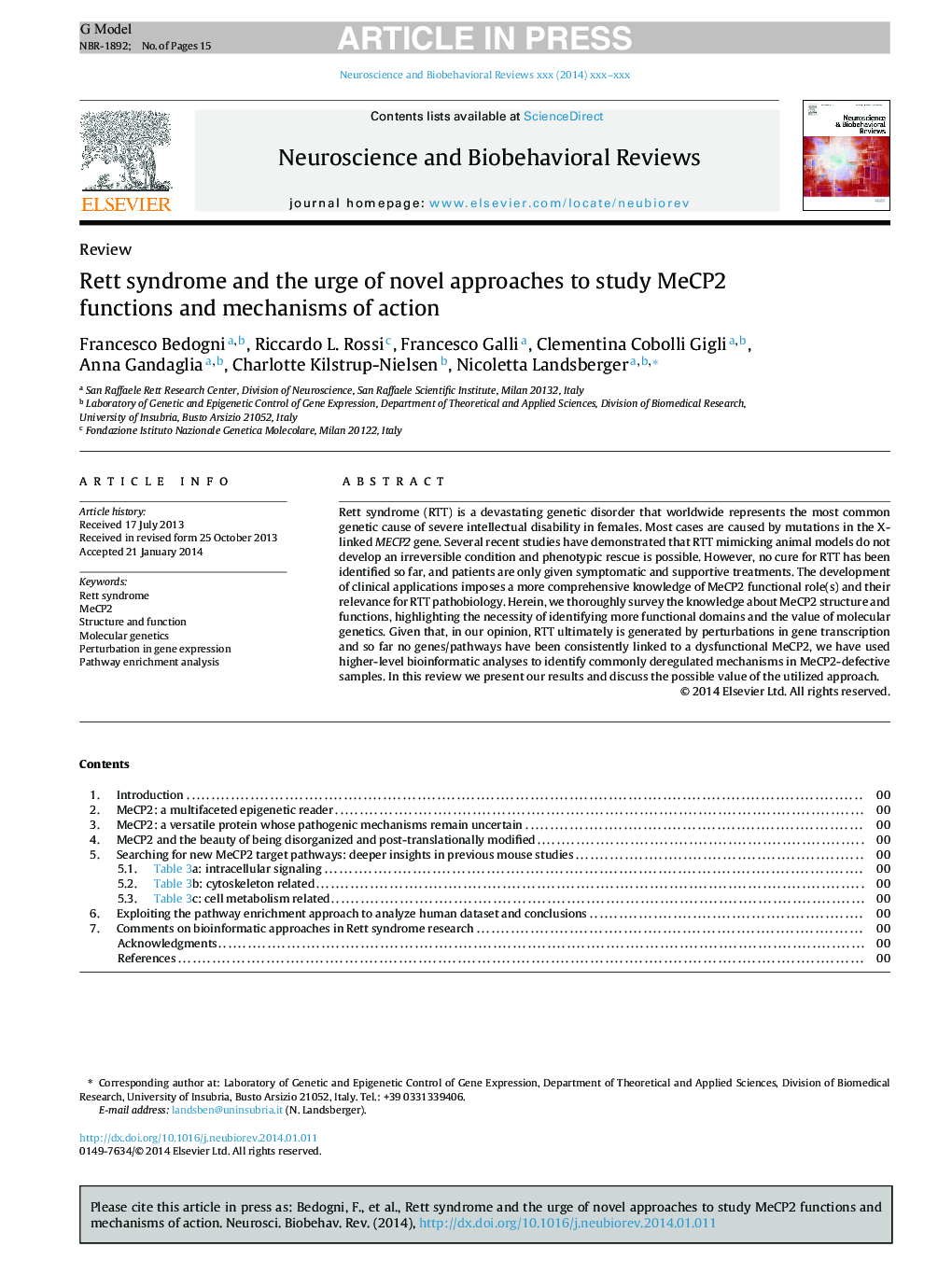| Article ID | Journal | Published Year | Pages | File Type |
|---|---|---|---|---|
| 10461662 | Neuroscience & Biobehavioral Reviews | 2014 | 15 Pages |
Abstract
Rett syndrome (RTT) is a devastating genetic disorder that worldwide represents the most common genetic cause of severe intellectual disability in females. Most cases are caused by mutations in the X-linked MECP2 gene. Several recent studies have demonstrated that RTT mimicking animal models do not develop an irreversible condition and phenotypic rescue is possible. However, no cure for RTT has been identified so far, and patients are only given symptomatic and supportive treatments. The development of clinical applications imposes a more comprehensive knowledge of MeCP2 functional role(s) and their relevance for RTT pathobiology. Herein, we thoroughly survey the knowledge about MeCP2 structure and functions, highlighting the necessity of identifying more functional domains and the value of molecular genetics. Given that, in our opinion, RTT ultimately is generated by perturbations in gene transcription and so far no genes/pathways have been consistently linked to a dysfunctional MeCP2, we have used higher-level bioinformatic analyses to identify commonly deregulated mechanisms in MeCP2-defective samples. In this review we present our results and discuss the possible value of the utilized approach.
Related Topics
Life Sciences
Neuroscience
Behavioral Neuroscience
Authors
Francesco Bedogni, Riccardo L. Rossi, Francesco Galli, Clementina Cobolli Gigli, Anna Gandaglia, Charlotte Kilstrup-Nielsen, Nicoletta Landsberger,
